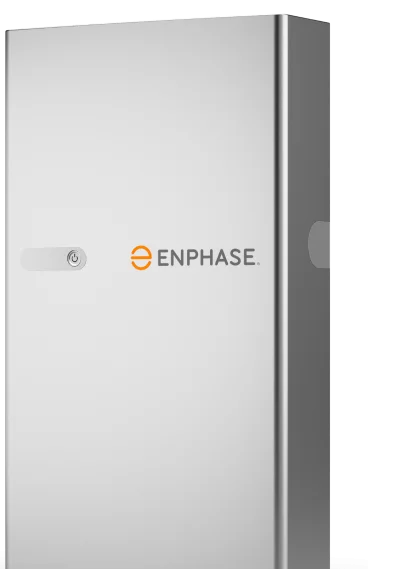4 reasons to choose a solar battery from Soly:
![]() Store your extra solar power to use day and night
Store your extra solar power to use day and night
![]() Industry leading 15 year warranty
Industry leading 15 year warranty
![]() Low voltage, high safety with our pioneering technology.
Low voltage, high safety with our pioneering technology.
![]() See how much power is stored in your solar battery storage through our app
See how much power is stored in your solar battery storage through our app
Why Opt for a Solar Battery?
Make the most of your energy
With a solar battery, you can store self-generated power from your solar panels, to use it later on.
Direct savings on energy costs
Import less electricity from the grid and save money on your energy bills.
Control your system at your fingertips
Control and track your solar battery and panel system with our easy-to-use app.


During the day, your solar panels generate power constantly, but this is often when homes use the least electricity. This surplus electricity can be sold back to the grid, but if you want to become even more self-sufficient, you can store it in a solar battery and use the energy when you need it at nighttime, or at a later date. When installing a home solar storage battery, the Solar Battery becomes part of the existing system of solar panels, microinverter, and grid.
With smart batteries for solar panels from Soly, you can increase your independence from the energy grid from 40-60%, to 60-80%*. Start calculating here or contact us for more information
*Dependent on generation, battery size and customer usage.


Enphase 5kWh Battery
We only use the safest, highest quality products. The Enphase battery is developed in the United States and made for optimal longevity and safety.
How Much Does a Solar Battery Cost?
Curious about the cost of a solar battery? If you’re looking for a battery combined with solar panels, you can easily calculate the price in our Solar Panel Cost Calculator. Or you can simply request a free Soly consultation by getting in touch with our team. We can provide you with a no-obligation indication and calculation of the cost and yield of a home battery based on your current situation. Payment plans are available*
What’s the Service Life of a Home Battery?
A home battery operates on charge cycles. UK households will normally use 345 cycles per year, and the Enphase solar battery from Soly has a lifespan of 6,000 cycles or 15 years, whichever is longer.
What is the Payback Period of a Solar Battery?
To calculate the payback period of a solar panel, we would need to look at three factors: price, storage capacity, and your energy consumption. Once we have this information, we can calculate your payback period for your solar batteries. Book a free consultation call with a solar expert to get more information.
The Enphase Solar Battery Packages from Soly
Depending on how much energy you’ll need to store, there are different sizes of solar storage batteries available. Our experts can help you understand how much battery storage you need.
5 kWh Solar Battery
from £4,325
Installation included
10 kWh Solar Battery
from £6,950
Installation included
15 kWh Solar Battery
from £9,405
Installation included
A Solar Battery in 4 steps
From application to installation, we take care of everything for you.
Calculate savings online
To work out how much you could save with a solar battery, simply fill in our calculator.
Book a personal consultation
It’s free to book a consultation with one of our experts, who will give you advice and guidance on your best solar energy products.
Quick quote
Immediately after the consultation, you’ll receive the quotation.
Installation day
Once you’ve signed and went through the technical review process, we’ll arrange for your home battery to be installed – this takes no longer than a day.
Your Solar Battery Expert Across the UK
Soly is your eco-friendly home energy solution and a Which? Trusted Trader. With an 4.7 satisfaction rating on TrustPilot,we’ve installed over 800,000 solar systems across the UK. Every year, our clients using our PV, battery storage generate 217.5 megawatts of renewable solar energy. We have a goal of becoming carbon neutral by 2030, so we strive to make solar energy and solar batteries accessible to all UK residents. As the best choice for green energy, our trusted local installers are accredited by HIES, TrustMark, and MCS.
Regional orientation
If you’re searching for a solar battery, UK residents can find us in Manchester, London, Newcastle, Birmingham, and Exeter, among other places.
Invest in your home
Installing solar panel battery storage costs less than you’d expect and it comes with numerous benefits. You’ll start seeing the benefits of solar energy storage immediately.
Good for our world
Batteries for solar are so much more than a sustainable option. They’re also economically smart. As another additional layer to your solar energy system, you gain a sense of freedom and empowerment as you reduce your dependence on the electrical grid.
Spread the cost
Soly customers can now access monthly repayment options when buying a solar battery.
- Takes less than 5 minutes to apply, either online or over the phone.
- You will receive a personalised finance offer immediately.
- Ideal 4 Finance offers competitive rates, tailored to suit your personal circumstances.
- Renowned for their great customer service, Ideal 4 Finance are rated 4.6/5 stars on Trustpilot.
FAQs
*”Soly UK Operations Limited is an introducer appointed representative of Ideal Sales Solutions Ltd T/A Ideal4Finance. Ideal Sales Solutions is a credit broker and not a lender (FRN 703401). Finance available subject to status. The rate offered is always provisional and will depend upon your personal circumstances, the loan amount and term.”
Get in touch


